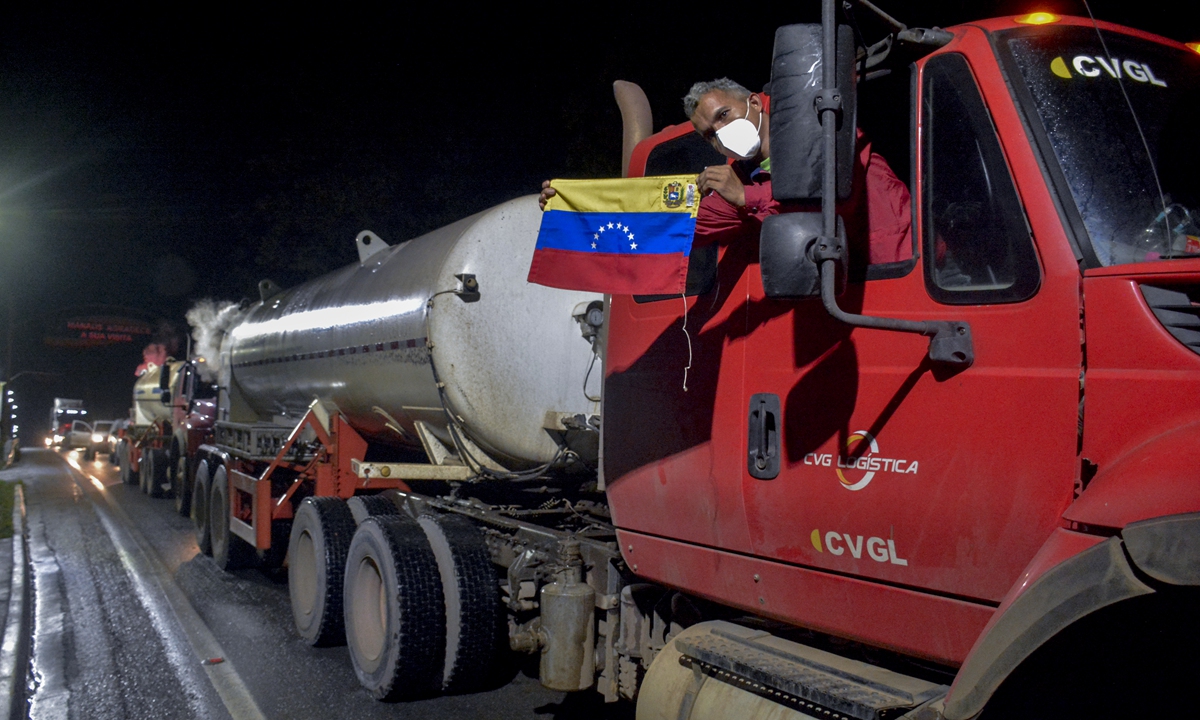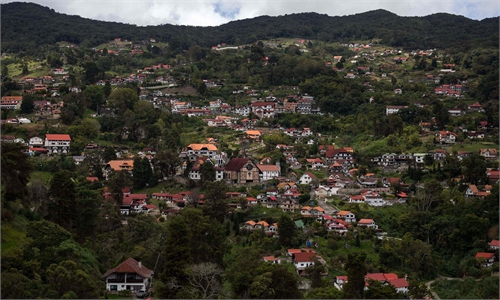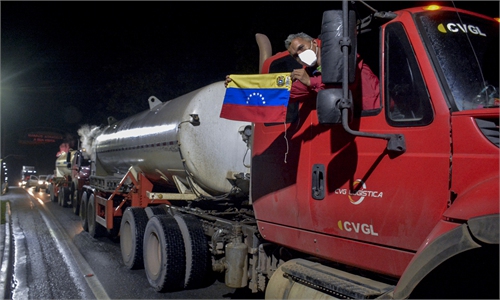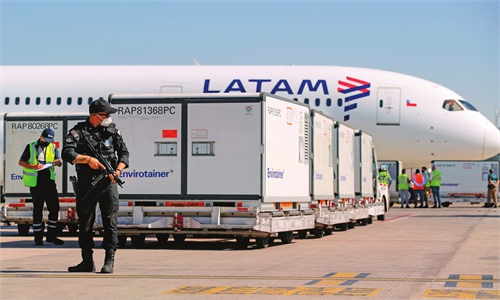
A Venezuelan truck driver holds a national flag as he and others arrive in Brazil bringing oxygen to assist COVID-19 patients in Manaus, Amazonas state, Brazil, on Tuesday. Under an overwhelming heat, dozens of people have been waiting for 12 hours to fill oxygen tanks and try to save the lives of their loved ones in Manaus, a Brazilian city plunged into chaos by the explosion of COVID-19 cases. Photo: AFP
Venezuela's government and opposition reported further progress toward resolving their differences during a third round of talks in Mexico City that wrapped up on Monday.The two sides' "positions moved closer in the search for solutions to the challenges in social, economic and political matters," said a statement read by Norwegian mediator Dag Nylander.
The parties did not go into detail about the areas of progress in negotiations aimed at solving the political crisis that has marked President Nicolas Maduro's eight-year rule.
They reported an advance in efforts to establish a mechanism for consultations with "national and international political and social actors" to support the negotiations, which are mediated by Norway.
Caracas is pushing for Western sanctions relief, while the opposition led by Juan Guaido wants guarantees of fair regional elections in November.
Neither Maduro, who is accused by the opposition of fraudulent reelection in 2018, nor Guaido, who is considered president by about 60 countries, is personally taking part in the talks.
The US has urged Maduro, a former bus driver who became president on the death of his mentor Hugo Chavez in 2013, to make serious efforts toward holding elections if he wants sanctions relief.
In comments to Venezuelan state television, Maduro welcomed what he called "another successful step" in the talks.
"I believe that we continue to advance in Mexico... towards a permanent, stable and deep peace for Venezuela... and the recovery of our assets abroad," he said.
Both sides condemned "acts of xenophobia and violence" against Venezuelans during a protest against undocumented foreigners over the weekend in Chile's northern port city of Iquique.
The events "constitute a very serious violation" of migrant rights, said the statement, which also deplored "hate campaigns" against Venezuelans in "various countries."
About 3,000 protesters took to the streets of Iquique on Saturday, some burning the belongings of rough-sleeping migrants who had been occupying a public square for months.



